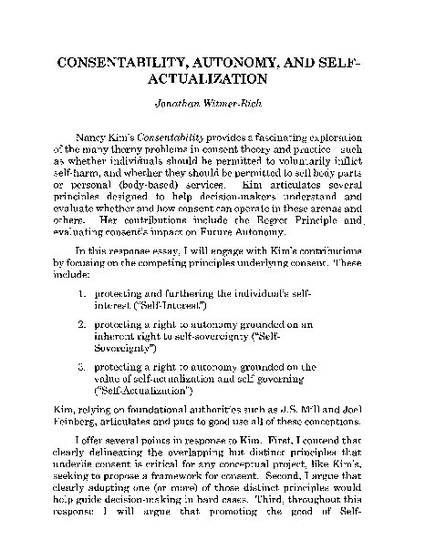
Article
Consentability, Autonomy, and Self-Actualization
Loyola Law Review
Document Type
Article
Publication Date
4-1-2020
Keywords
- consent,
- autonomy,
- self-interest,
- self-sovereignty,
- self-actualization
Abstract
This essay evaluates several competing principles underlying consent, such as self-interest, self-sovereignty, and self-actualization. Witmer-Rich argues that the nature of consent depends heavily on which of these underlying values consent is believed to serve and concludes that “self-actualization—the ongoing human project of creating and embodying coherent and meaningful values and choices—is the most fundamental good of autonomy and is the good that society should seek to further in the law of consent.”
Citation Information
Jonathan Witmer-Rich. "Consentability, Autonomy, and Self-Actualization" Loyola Law Review Vol. 66 Iss. 1 (2020) p. 75 - 89 Available at: http://works.bepress.com/jonathan_witmer_rich/32/

This issue is devoted to a collection of invited essays responding to Professor Nancy S. Kim’s book Consentability: Consent and Its Limits, published by Cambridge University Press.